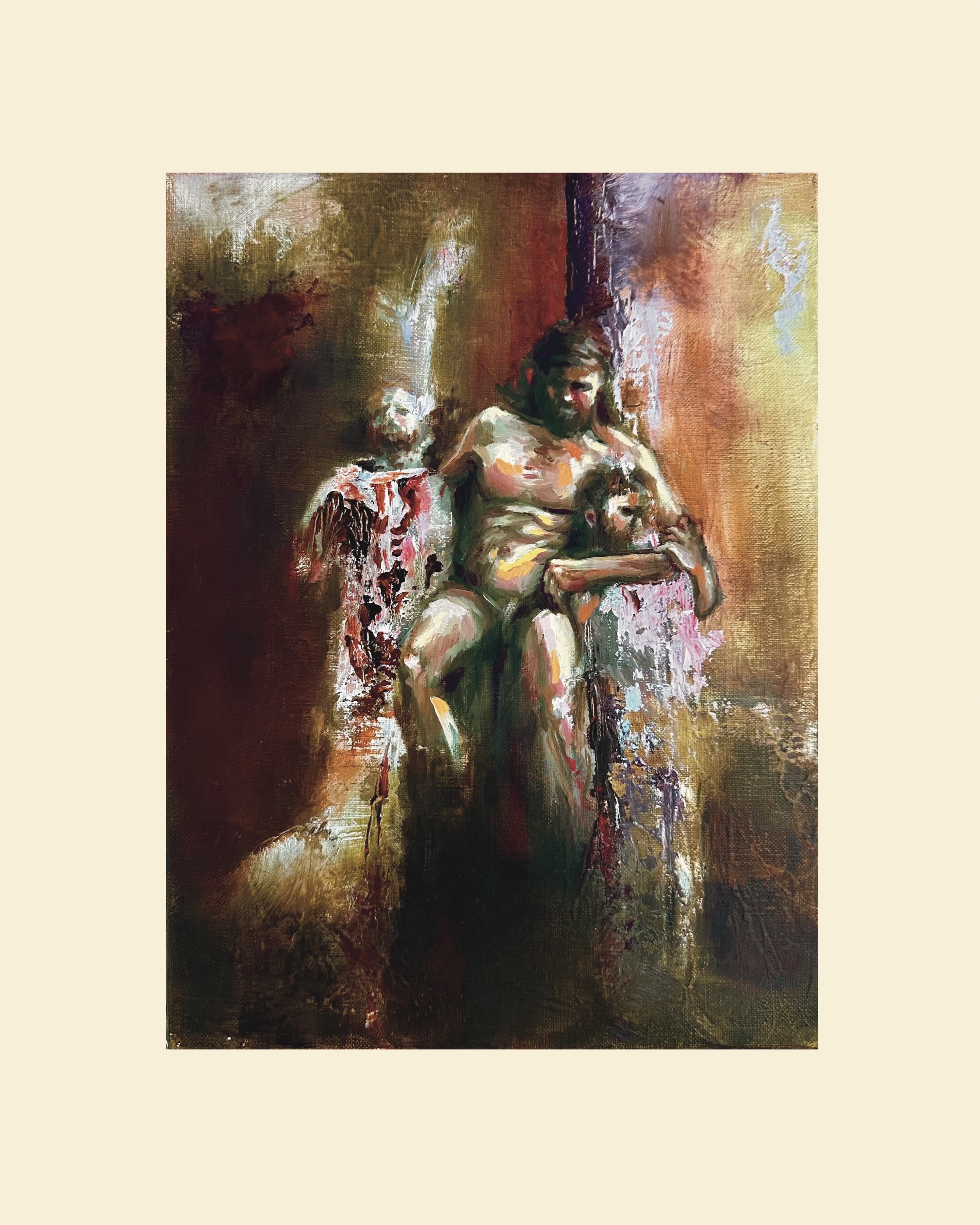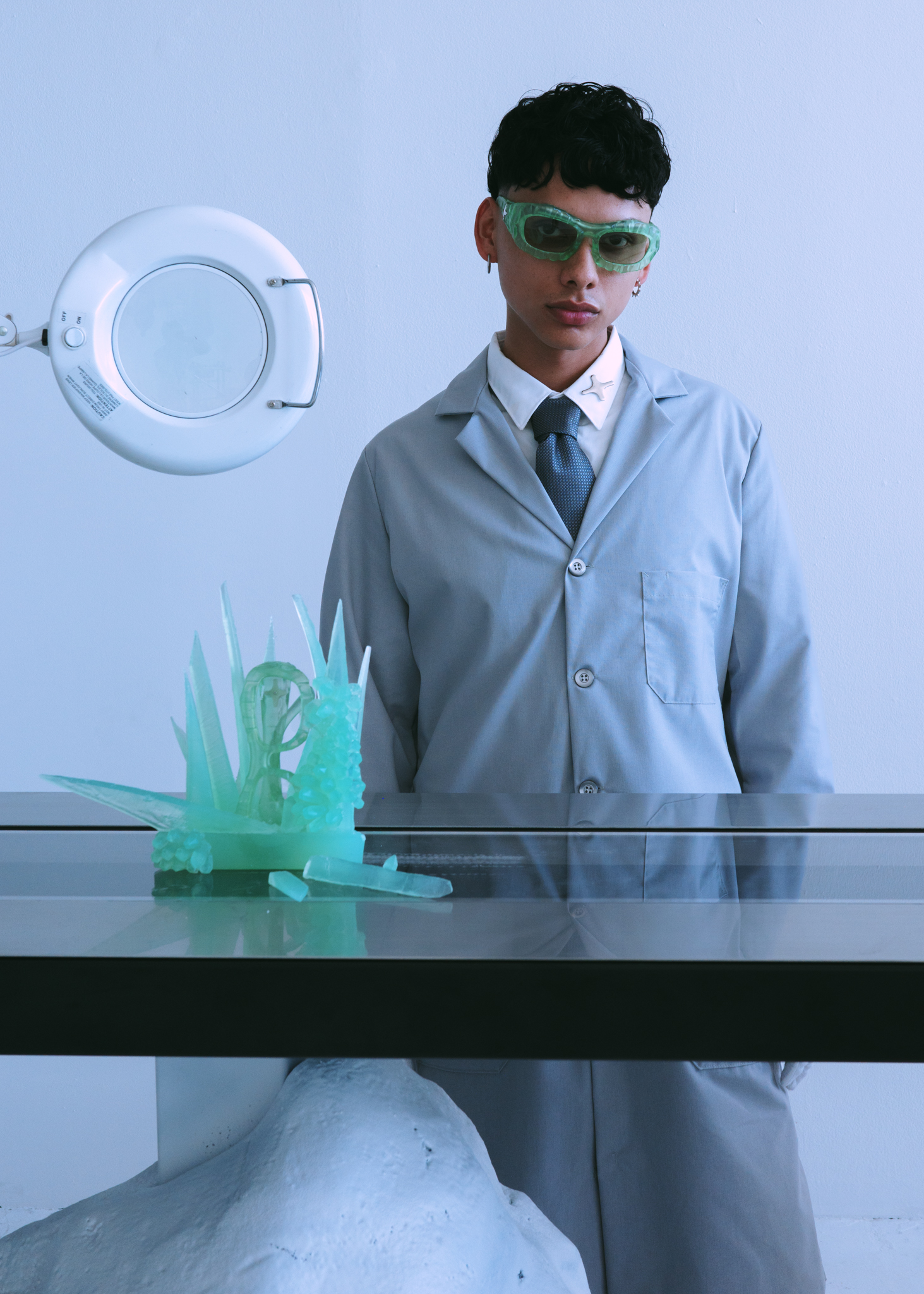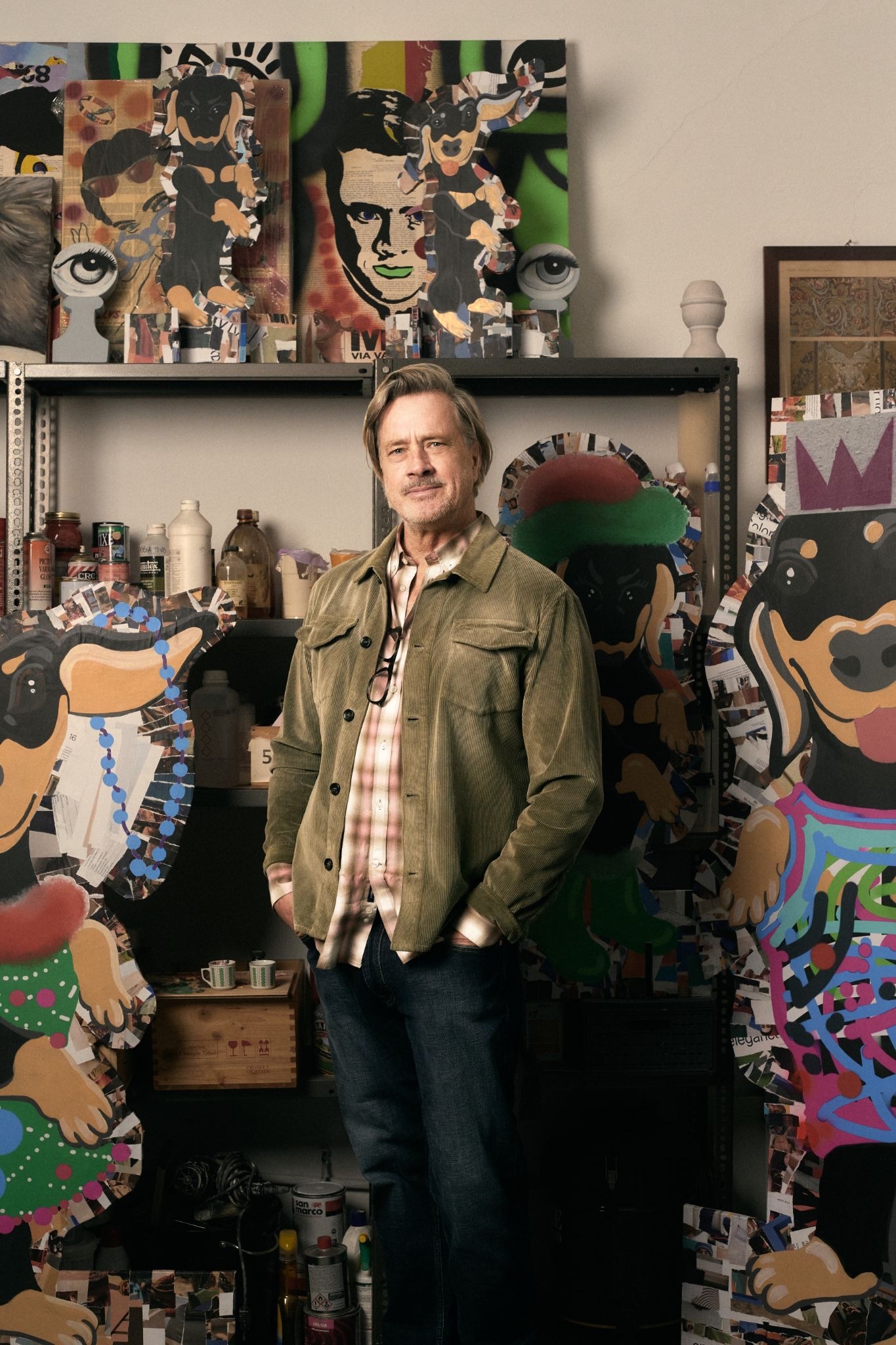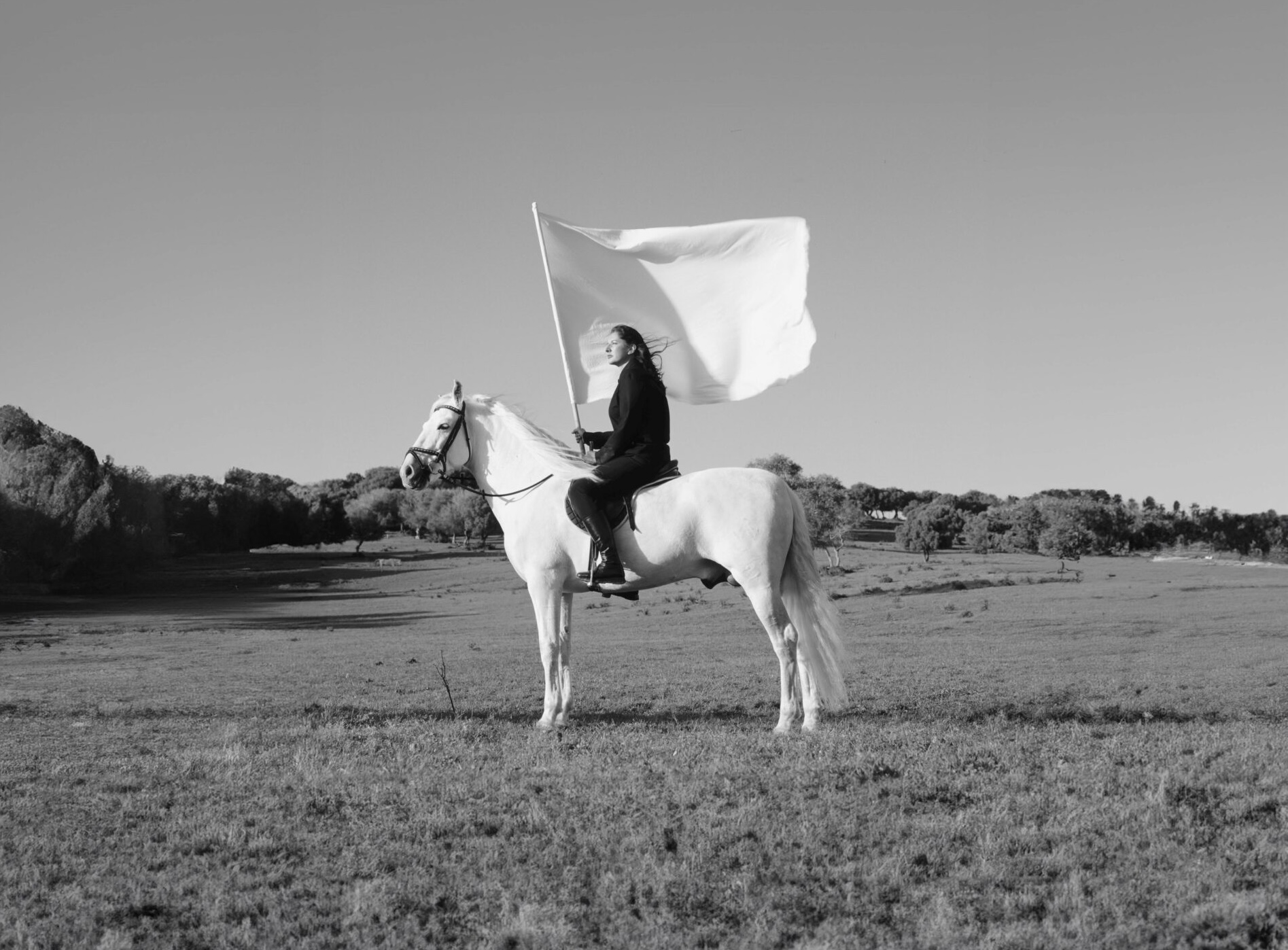

Eliza Hittman | images shot by Aubrie Pick
“It feels very cut off from the rest of New York City,” Eliza Hittman tells me, referring to the setting of her new film, _Beach Rats_, which won her a Best Director award at this year’s Sundance Film Festival. I met up with Hittman in another variety of compartmentalized coastal environment—the gentrified Mission District in San Francisco.
Around the corner from a pricey brunch spot with a line out the door and a man power-washing that stubbornly persistent urban grime off the sidewalk, we sat down to discuss the world of Frankie, the film’s protagonist—a world that Hittman realized she wanted to explore while studying film at CalArts. “A lot of my classmates were from these very exotic places, and I was from Brooklyn. I liked a lot of social-realist type films, and I realized that I could tap Brooklyn for similar narratives.”
Though she’s a born-and-bred Brooklynite, Hittman is not the stereotypical brash, fast-talking New Yorker. She emanates a calm perceptivity that makes sense considering the film’s fleshed-out, nuanced world. “When I’m writing I’m always walking around and thinking about the environment,” she explains. “I don’t sit at a desk for very long—I’m mostly out in the world, taking things in and folding them into the story.”


The arc of the film follows Frankie—the kind of guy whose friends wear gold chains and do pull- ups from subway car handrails—as he navigates a particularly tough summer. “I think a lot of the story is informed by the setting,” says Hittman of Frankie’s Brooklyn, “but there is definitely a universality to the experience of the characters.”
He’s surrounded by uncertainty: his neighborhood is on the cusp of change, his father is in hospice care, he has complicated feelings for a new girl he meets on the boardwalk and even more complicated feelings for the older men he meets on a Chatroulette-type hookup site. Though an expert on Frankie’s Brooklyn by virtue of growing up “maybe three subway stops away,” Hittman’s relationship to Frankie’s sexual exploration was based on following her instincts. In terms of getting the particulars just right, Hittman “didn’t obsess over it. There are experiences that we all share, so I approached it as much as possible from a character-based place.”
Frankie’s struggle to understand himself is at the core of _Beach Rats_. “I don’t know what I like,” he repeats to the different men he meets online, and it’s in that ambiguity that the film’s tension lives. “There are destructive and violent consequences that stem from the inability to accept yourself,” says Hittman of the film’s overall message. One such example is when Frankie and his friends brutally rob a gay guy they meet online for his weed. “What happens in the scene emanates from a self-loathing place and spirals out of control.”
Control, in this case of real estate developers who, thanks to the distance between Frankie’s neighborhood and trendier parts of the city, are only just beginning to erect cookie-cutter condos in earnest, is how Frankie’s world has continued to exist for as long as it has. In time it seems likely that the vape shop he frequents throughout the film, which Hittman points out “is something we haven’t really seen on film before, which I’m always looking for, and is also really specific to that neighborhood,” will be replaced by an artisanal cheese shop, and his area of Brooklyn will become just another Mission District.
Regardless of that progression, Hittman is quick to assert that “we still live in a world where people struggle to find acceptance from their community and from themselves.” We aren’t given a definitive answer as to how, or if, Frankie will come to terms with himself. Given the current myriad examples of what happens when self-loathing and insecurity fester, we can only hope he reaches the place he’s looking for.
* * *
Written by Michael Podell
Photographed by Aubrie Pick
 
Eliza Hittman | images shot by Aubrie Pick
“It feels very cut off from the rest of New York City,” Eliza Hittman tells me, referring to the setting of her new film, _Beach Rats_, which won her a Best Director award at this year’s Sundance Film Festival. I met up with Hittman in another variety of compartmentalized coastal environment—the gentrified Mission District in San Francisco.
Around the corner from a pricey brunch spot with a line out the door and a man power-washing that stubbornly persistent urban grime off the sidewalk, we sat down to discuss the world of Frankie, the film’s protagonist—a world that Hittman realized she wanted to explore while studying film at CalArts. “A lot of my classmates were from these very exotic places, and I was from Brooklyn. I liked a lot of social-realist type films, and I realized that I could tap Brooklyn for similar narratives.”
Though she’s a born-and-bred Brooklynite, Hittman is not the stereotypical brash, fast-talking New Yorker. She emanates a calm perceptivity that makes sense considering the film’s fleshed-out, nuanced world. “When I’m writing I’m always walking around and thinking about the environment,” she explains. “I don’t sit at a desk for very long—I’m mostly out in the world, taking things in and folding them into the story.”

Eliza Hittman | images shot by Aubrie Pick
“It feels very cut off from the rest of New York City,” Eliza Hittman tells me, referring to the setting of her new film, _Beach Rats_, which won her a Best Director award at this year’s Sundance Film Festival. I met up with Hittman in another variety of compartmentalized coastal environment—the gentrified Mission District in San Francisco.
Around the corner from a pricey brunch spot with a line out the door and a man power-washing that stubbornly persistent urban grime off the sidewalk, we sat down to discuss the world of Frankie, the film’s protagonist—a world that Hittman realized she wanted to explore while studying film at CalArts. “A lot of my classmates were from these very exotic places, and I was from Brooklyn. I liked a lot of social-realist type films, and I realized that I could tap Brooklyn for similar narratives.”
Though she’s a born-and-bred Brooklynite, Hittman is not the stereotypical brash, fast-talking New Yorker. She emanates a calm perceptivity that makes sense considering the film’s fleshed-out, nuanced world. “When I’m writing I’m always walking around and thinking about the environment,” she explains. “I don’t sit at a desk for very long—I’m mostly out in the world, taking things in and folding them into the story.”
 
The arc of the film follows Frankie—the kind of guy whose friends wear gold chains and do pull- ups from subway car handrails—as he navigates a particularly tough summer. “I think a lot of the story is informed by the setting,” says Hittman of Frankie’s Brooklyn, “but there is definitely a universality to the experience of the characters.”
He’s surrounded by uncertainty: his neighborhood is on the cusp of change, his father is in hospice care, he has complicated feelings for a new girl he meets on the boardwalk and even more complicated feelings for the older men he meets on a Chatroulette-type hookup site. Though an expert on Frankie’s Brooklyn by virtue of growing up “maybe three subway stops away,” Hittman’s relationship to Frankie’s sexual exploration was based on following her instincts. In terms of getting the particulars just right, Hittman “didn’t obsess over it. There are experiences that we all share, so I approached it as much as possible from a character-based place.”
Frankie’s struggle to understand himself is at the core of _Beach Rats_. “I don’t know what I like,” he repeats to the different men he meets online, and it’s in that ambiguity that the film’s tension lives. “There are destructive and violent consequences that stem from the inability to accept yourself,” says Hittman of the film’s overall message. One such example is when Frankie and his friends brutally rob a gay guy they meet online for his weed. “What happens in the scene emanates from a self-loathing place and spirals out of control.”
Control, in this case of real estate developers who, thanks to the distance between Frankie’s neighborhood and trendier parts of the city, are only just beginning to erect cookie-cutter condos in earnest, is how Frankie’s world has continued to exist for as long as it has. In time it seems likely that the vape shop he frequents throughout the film, which Hittman points out “is something we haven’t really seen on film before, which I’m always looking for, and is also really specific to that neighborhood,” will be replaced by an artisanal cheese shop, and his area of Brooklyn will become just another Mission District.
Regardless of that progression, Hittman is quick to assert that “we still live in a world where people struggle to find acceptance from their community and from themselves.” We aren’t given a definitive answer as to how, or if, Frankie will come to terms with himself. Given the current myriad examples of what happens when self-loathing and insecurity fester, we can only hope he reaches the place he’s looking for.
* * *
Written by Michael Podell
Photographed by Aubrie Pick

The arc of the film follows Frankie—the kind of guy whose friends wear gold chains and do pull- ups from subway car handrails—as he navigates a particularly tough summer. “I think a lot of the story is informed by the setting,” says Hittman of Frankie’s Brooklyn, “but there is definitely a universality to the experience of the characters.”
He’s surrounded by uncertainty: his neighborhood is on the cusp of change, his father is in hospice care, he has complicated feelings for a new girl he meets on the boardwalk and even more complicated feelings for the older men he meets on a Chatroulette-type hookup site. Though an expert on Frankie’s Brooklyn by virtue of growing up “maybe three subway stops away,” Hittman’s relationship to Frankie’s sexual exploration was based on following her instincts. In terms of getting the particulars just right, Hittman “didn’t obsess over it. There are experiences that we all share, so I approached it as much as possible from a character-based place.”
Frankie’s struggle to understand himself is at the core of _Beach Rats_. “I don’t know what I like,” he repeats to the different men he meets online, and it’s in that ambiguity that the film’s tension lives. “There are destructive and violent consequences that stem from the inability to accept yourself,” says Hittman of the film’s overall message. One such example is when Frankie and his friends brutally rob a gay guy they meet online for his weed. “What happens in the scene emanates from a self-loathing place and spirals out of control.”
Control, in this case of real estate developers who, thanks to the distance between Frankie’s neighborhood and trendier parts of the city, are only just beginning to erect cookie-cutter condos in earnest, is how Frankie’s world has continued to exist for as long as it has. In time it seems likely that the vape shop he frequents throughout the film, which Hittman points out “is something we haven’t really seen on film before, which I’m always looking for, and is also really specific to that neighborhood,” will be replaced by an artisanal cheese shop, and his area of Brooklyn will become just another Mission District.
Regardless of that progression, Hittman is quick to assert that “we still live in a world where people struggle to find acceptance from their community and from themselves.” We aren’t given a definitive answer as to how, or if, Frankie will come to terms with himself. Given the current myriad examples of what happens when self-loathing and insecurity fester, we can only hope he reaches the place he’s looking for.
* * *
Written by Michael Podell
Photographed by Aubrie Pick









.JPG)
.jpg)







